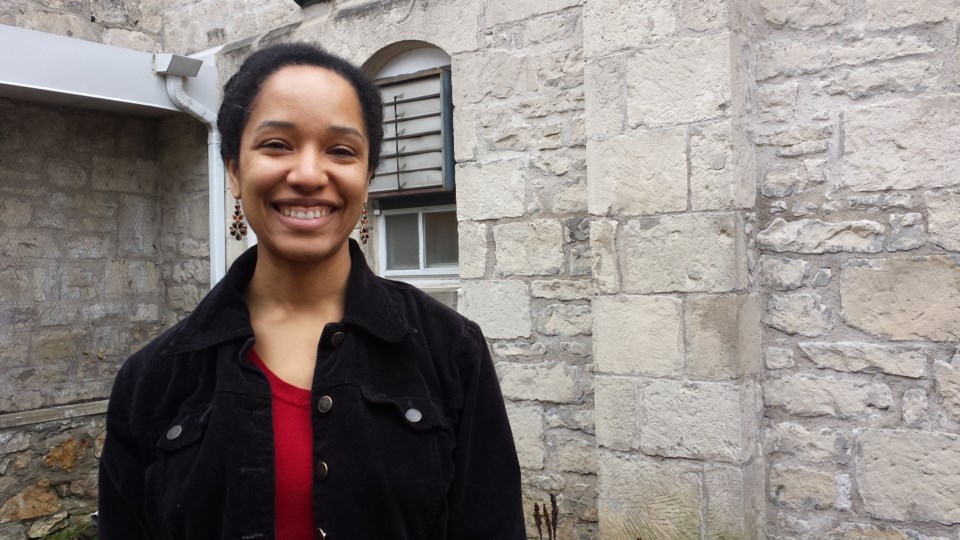Partnerships matter in times of crisis.
Since the COVID-19 pandemic struck, HOPE House has found true strength in partnering with others.
“I’m so overwhelmed with gratitude at how everyone has risen to meet the needs of the most vulnerable in our community,” says Jaya James, executive director at HOPE House.
In mid-March, community organizations came forward with a plan for HOPE House to radically alter its programs and program delivery.
“It is unbelievable how it all came together so quickly. Everyone has been so generous,” James says.
Partnerships with the Drop-In Centre, Royal City Mission, Chalmers Community Services and the Community Health Centre help ensure that no one is without food in Guelph.
“HOPE House, the Drop-In Centre and Royal City Mission had meal programs already in place, but we needed to find a way people could still have access, and safely” James said.
“So, we came up with the idea that if we share staff, the Drop-In Centre can stay open 24 hours. Other groups also stepped up by sending additional staff members.”
Royal City Mission will continue cooking in their newly renovated kitchen, seven days a week.
More organizations and businesses are also on board with HOPE House including Wyndham House and the Salvation Army.
“The key for us at HOPE House is to stay focused on our own food market,” James said.
The HOPE House Food Market is a free, choice-based pantry open to both working and non-working individuals and families who need a helping hand. They are free to shop the market for food and other items while receiving guidance from volunteers on how to make the most of their budget.
“We’ve had to make major changes during this time and so many groups have stepped up to meet the needs of the community.”
Self-isolation during the pandemic can trigger many negative feelings including, anxiety, loneliness and depression.
But a partnership with Five Star Relationships allows HOPE House to offer on-line and phone counselling services at no cost to individuals in need of support.
Linamar has also come forward to facilitate the delivery of grocery orders to households so that everyone can practice physical distancing.
“Linamar reached out to us because many of their drivers are not working right now so they’re helping us out and they are still being paid to do this. It would be impossible without them,” James said.
“People do not need to leave their homes to have their groceries delivered to them and it’s because of these partnerships.”
HOPE House is also partnered with tax consultant, Sue Morris. This allows for low income households to complete their taxes over the phone rather than face to face.
“Sue Morris specializes in low income households and has developed a process with minimal interaction. It’s a big deal because it allows people to have access and receive their refunds which they depend on,” James said.
And a partnership with The Community Company, which developed the ‘wellness box’ program, helps to encourage not only physical but mental health too. A few ‘pick-me-up’ items are delivered along side HOPE House Food Market groceries.
For Community Company founder, Justin Chan, it is about understanding the needs of the community.
“Once the pandemic hit and we realized that this might be the new norm for awhile, I felt that our organization had to do something. So, I sat down with Jaya James from HOPE House and asked her what was needed,” Chan said.
The most important issues are food accessibility and food security for the most vulnerable, including elders and those with accessibility issues.
“Justin has a gift when working with those who are vulnerable, and he let’s them shine. We did one collaboration before and when COVID-19 hit, he came back with the ‘wellness box’ idea which is full of nutritional items as well as a craft or a board game, just a little ‘pick-me-up’ to offer,” James said.
A typical wellness box might include avocados, fresh blueberries, asparagus as well as a set of acrylic paints, art canvas, a paintbrush set and most importantly, a handwritten note with a personal message.
The idea is to build community in a time of crisis, to let people know they are being thought of.
There were 10 wellness boxes delivered last week and at least 20 more were to be delivered this week.
“I’m a big believer that a business has a responsibility to provide support and leadership at times like this. It’s important for organizations to adapt and to learn what the community needs are and to add value to that without receiving anything in return,” Chan said.
“Partnerships are so important right now. It’s not about being a hero. It’s about playing a part in something much bigger. It’s about coming forward and standing together at a time like this."


